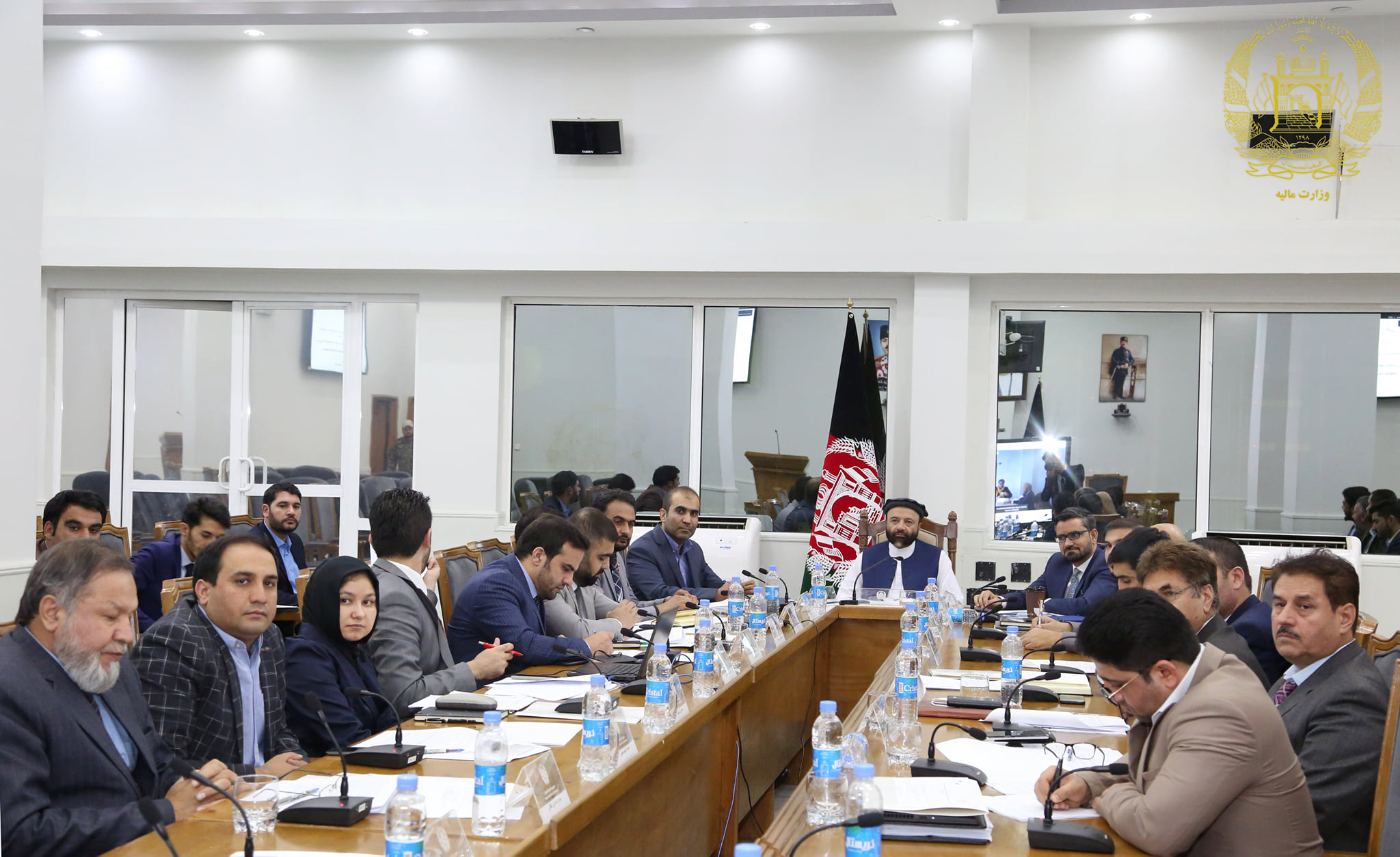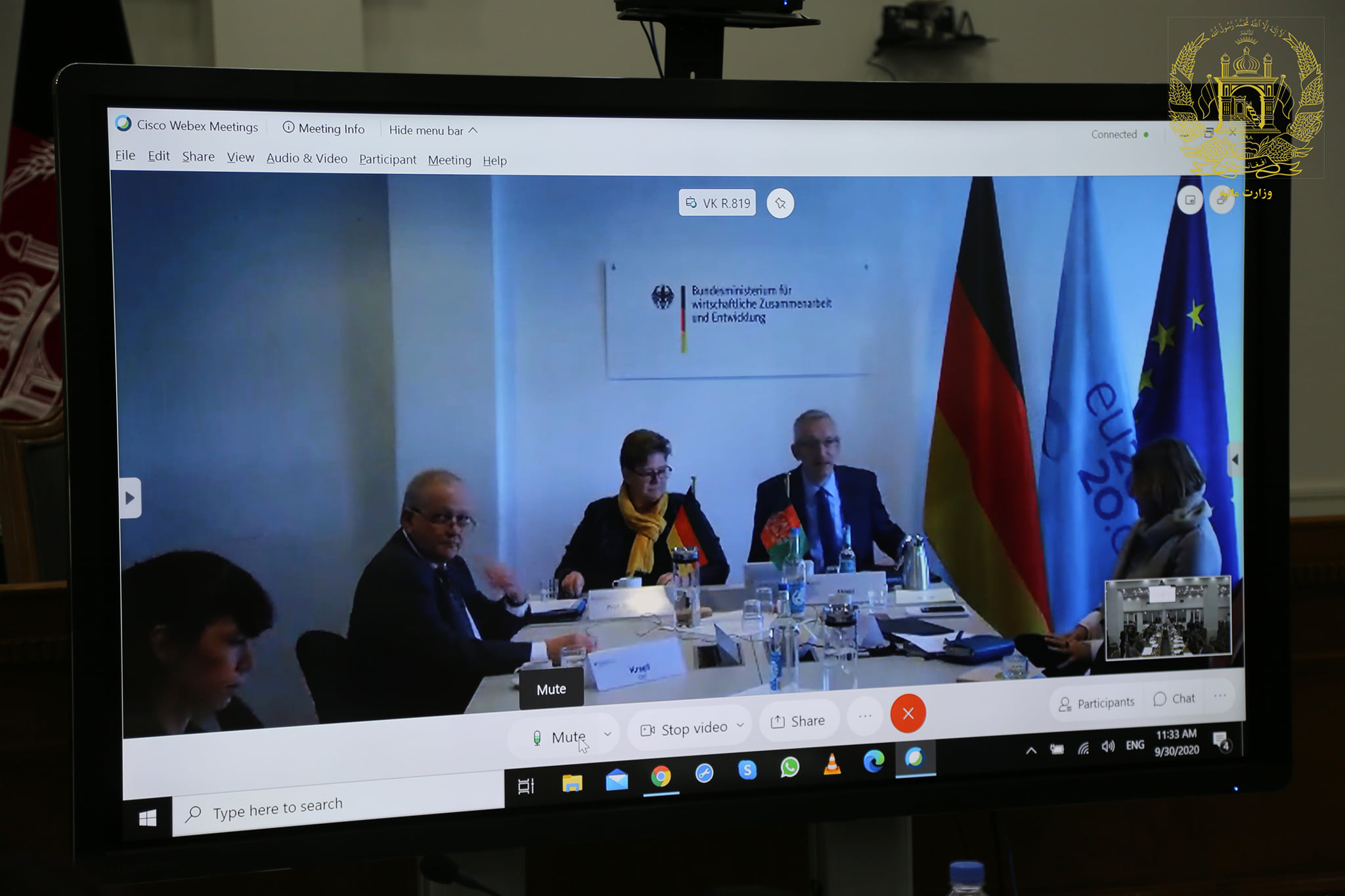German Ministry for Economic Cooperation and Development (BMZ) to Provide AFN 21.3 Billion

German Government to Continue Development Cooperation with Afghanistan:
Virtual Conference, 1st October 2020 – Yesterday, government negotiations on development cooperation between the Islamic Republic of Afghanistan and the Federal Republic of Germany for 2020 ended successfully. The German Federal Ministry for Economic Cooperation and Development (BMZ) commits to invest an overall amount of about AFN 21.3 billion (EUR 240 million) for financial and technical cooperation in 2020. Further funding is provided by BMZ directly to non-governmental organisations, and in addition the German Federal Foreign Office is supporting Afghanistan with up to AFN 16 billion (EUR 180 million) for stabilisation projects as well as AFN 1.7 billion (EUR 19.4 million) for humanitarian assistance in 2020. Germany will thus fulfil its pledge at the 2016 Brussels Conference, where it committed to providing up to EUR 430 million per year in overall civilian assistance.
Mr Martin Jaeger, State Secretary of BMZ said, ‘Improving the lives of Afghan men and women, boys and girls is our joint goal. Together, we are seeking to create jobs, fight hunger and poverty, strengthen Afghan institutions, and build and maintain infrastructure.’ Cooperation between the two countries will focus on peaceful and inclusive societies, training and sustainable growth for decent jobs, and responsibility for our planet in terms of climate and energy.
This is the second commitment of funding between the German and Afghan governments this year. Already in June 2020, in order to support Afghanistan in its response to the COVID-19 pandemic, Germany committed an amount of AFN 5.77 billion (EUR 69.8 million) earlier than planned from the total amount of AFN 21.3 billion (EUR 240 million) for this year. This included AFN 3.3 billion (EUR 40 million) as a contribution to the Afghanistan Reconstruction Trust Fund (ARTF). Based on progress made by the Government of Afghanistan in relation to the Geneva Mutual Accountability Framework (GMAF) and considering the special circumstances this year in regards COVID-19 and peace negotiations, Germany is now allocating an additional amount of AFN 4.9 billion (EUR 55 million) to ARTF. This allows for an overall ARTF contribution of AFN 8.46 billion (EUR 95 million)[1] in 2020.
[1] Sum calculated in EUR according to the respective monthly exchange rate (InforEuro, European Commission)

Abdul Hadi Arghandiwal, Afghanistan’s Acting Finance Minister said, ‘Germany as the second largest donor to Afghanistan, has played a key role in the reconstruction of Afghanistan in the post-2001 era. The Afghan-German Cooperation has contributed to substantial achievements in the implementation of our joint development agenda.’
The German side emphasised that Germany will remain a reliable long-term partner for the development of Afghanistan and its people. Mr Martin Jaeger said, ‘Afghanistan and Germany can look back at over one hundred years of friendship. Germany will continue to be a partner and friend of Afghanistan on its path towards peace, inclusive and sustainable development, and democracy – if the conditions are right.’
Since the last government negotiations in 2018, the focus areas of Afghan-German development cooperation have been refined to three new major topics. Priorities now include peaceful and inclusive societies, training and sustainable growth for decent jobs, responsibility for our planet in terms of climate and energy as well as cooperation outside of these priority areas. The activities of German development cooperation in these areas aim to improve the capacity of government institutions, fight corruption, improve access to law, engage the population in decision-making processes, improve resilience and social cohesion among the Afghan people, and create lasting income-generating opportunities. Furthermore, they aim to improve the supply of renewable energy and adapt to climate change through improved management of scarce water resources, reforestation and the sustainable use of natural resources.
Mr Abdul Hadi Arghandiwal said, ‘Bringing peace has remained a top priority of the Afghan people and the government. Thanks to the sacrifices of our people, our national security and defence forces and those of our international partners, the government has demonstrated its commitment to peace by taking unmatched confidence building measures.’
The Afghan-German Cooperation aims at improving living conditions and future prospects of Afghan citizens. Germany expects a commitment towards good governance, strengthening institutions and combating corruption. Furthermore, it expects that the human rights and fundamental freedoms of all Afghans, especially women, children, minorities and groups at risk, be protected and strengthened, so that all people can benefit from the economic, social, political and development achievements of the past 19 years.
Based on these principles, Germany continues to support Afghanistan on its way to self-reliance. These objectives are fully aligned with Afghan priority policies, such as the Afghan National Peace and Development Framework and National Priority Programmes. Germany is also looking forward to the new Helsinki Partnership Framework (HPF) to be agreed on jointly with other donors and the Afghan government in November 2020. Both sides emphasised the need to agree upon a strong HPF that addresses the major reform areas and reiterates the principle of mutual accountability. Germany will continue to incentivise its development cooperation funding based progress towards such reforms. In areas that show no evidence for progressing reforms, support may be reduced or halted.
The German side also reiterated that operations and maintenance strategies and agreements with the respective partner institutions are mandatory for all infrastructure projects funded by German development cooperation and are a prerequisite for any new investment.
